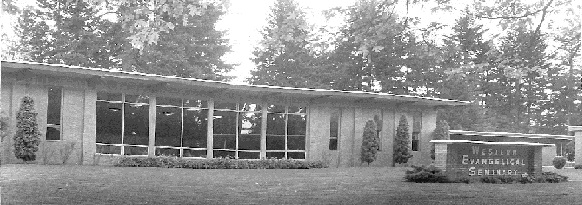Date of Award
5-1959
Document Type
Thesis
Department
Seminary
Abstract
The question has been raised since the inception of the Friends or Quaker movement, "What position do the Friends hold in reference to a basis of authority for their proposed and propounded doctrines?" This basis of authority was first questioned by various religious leaders of the day when George Fox went about preaching against the cold, dead, formalism of the churches in England, and remains a matter of some debate today.
Since the beginning of the Friends movement, it has held the Bible in great reverence and has used it as a basis of their teaching. Other groups, too, considered the Bible their source of authority -- groups such as John Calvin brought into being. We find that Calvin's approach to Christianity was logical and systematic, whereas George Fox preached a purely experiential religion. They both used the Bible as their authority, yet they arrived at the widely divergent conceptions of Christina rules and faith.
Every theological system has some thing or some one as a basis of its authority. For the Christian religion this source is called the Word of God. But in the consideration of defining the Word of God, it would seem every separate group in Christianity has a different view of what the term consists. When there are divergent views on what the Word of God consists there will be different views of Christina doctrine and faith.
It is proposed to state as concisely as possible the views of John Calvin and the early Friends in an attempt to discover where and for what reasons there is this divergence of views between them.
Some theologians feel that within the scope of the term Word of God are involved more than merely the written Scriptures. It is essential that three phases of study be undertaken here for all are directly related to such a study in any group. These phases or areas are 1) Revelation in general 2) Revelation in regard to the Word of God, and 3) Revelation in regard to the Sacraments.
Some of the specific problems to be considered are: 1) How has God revealed Himself to man and does He still reveal Himself: Is revelation finished? 2) Of what does the Word of God consist -- i.e. is it limited to the written Word, and if so, to what extent? If not, what are the other phases of the Word of God? 3) Of what do the sacraments consist and what part do they play in the salvation of man? Are they essential to salvation? If there any real merit or value between the spiritual and physical or corporeal elements?
Recommended Citation
Schuler, Peter R., "A Critical and Comparative Analysis of John Calvin's and the Early Friends' Doctrine of the Word of God" (1959). Western Evangelical Seminary Theses. 26.
https://digitalcommons.georgefox.edu/wes_theses/26

